The dying days of the Soviet Union
It did not feel predestined at the time, in fact the country felt very stable when I was there. But it turns out the empire was crumbling. Patrick Cockburn recalls his time in Moscow

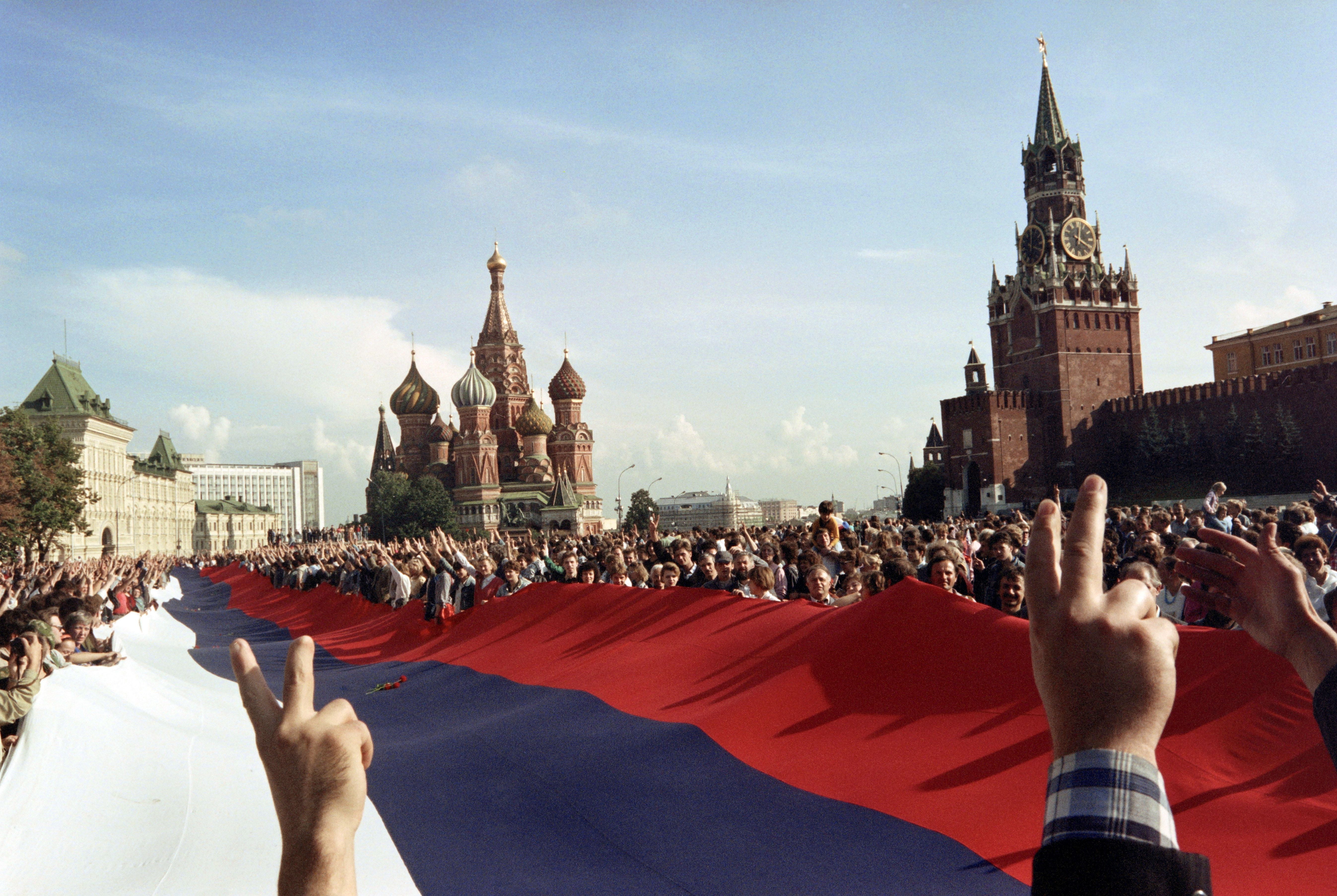
I was a reporter in Moscow between 1984 and 1987 in what turned out to be the last years of the Soviet Union. The period has since been labelled as a time when the Soviet system was in a terminal crisis preceding its collapse in 1991. But it did not feel like that at the time and there was nothing inevitable about the disintegration to come. Indeed, at the time I had difficulty in persuading people that anything significantly new was happening in Moscow even when Mikhail Gorbachev became General Secretary of the CPSU (Communist Party of the Soviet Union) in May 1985.
Of course, I did not foresee the political earthquake that was in the making but it soon became clear that history was taking an abrupt and dramatic turn, though there were plenty of Kremlinologists, diplomats and journalists who maintained that the whole Gorbachev phenomenon was a PR stunt orchestrated by the KGB and the Kremlin. Those who thought otherwise were either having the wool pulled over their eyes or were culpably ignorant of Soviet machinations.
I could see there were some political, social and economic cracks in the USSR when I arrived there in 1984, but overall the country appeared fairly stable to me. On the other hand, the bar for me was not very high because I had just come from Beirut where the army had mutinied and the presidential place was under artillery fire. Looking back, I believe it was this very stability that gave the Soviet leaders the idea that they could radically reforms their system without cutting through the branch on which they were sitting. This was the same mistake that Louis XVI made when he summoned the Estates General in France in 1789. Authoritarian regimes tend to believe their own propaganda, underestimating the extent to which their grip on power relies on the force.
Despite all the secrecy, what was happening in the Soviet Union was obvious enough: the old order, the wartime generation, was dying
Sedate and even moribund Moscow may have felt when I arrived, but it was in the midst of a slow-burn struggle at the top between reformers and the ageing protagonists of the old regime. In Beirut, journalists and diplomats had watched the battles in the hills overlooking the city to show us who were the winners and losers.
In Moscow, the equivalent staging posts in the leadership battle were state funerals where the coffin of the latest Politburo member to die was carried through Red Square. Surviving members of the leadership watched the funeral from on top of Lenin’s red granite tomb, while journalists and diplomats, standing in reserved areas just below, stared up in an effort to diagnose the progress of their various ailments.
There were four important deaths. Leonid Brezhnev and his successor Yuri Andropov died in the two years before I arrived, and in the next six months they were followed by Marshal Dmitri Ustinov, the defence minister, and Konstantin Chernenko, president and general secretary of the CPSU. Soviet officials, like hospital spokesmen, issued optimistic bulletins up to the moment that television and radio switched to solemn music.
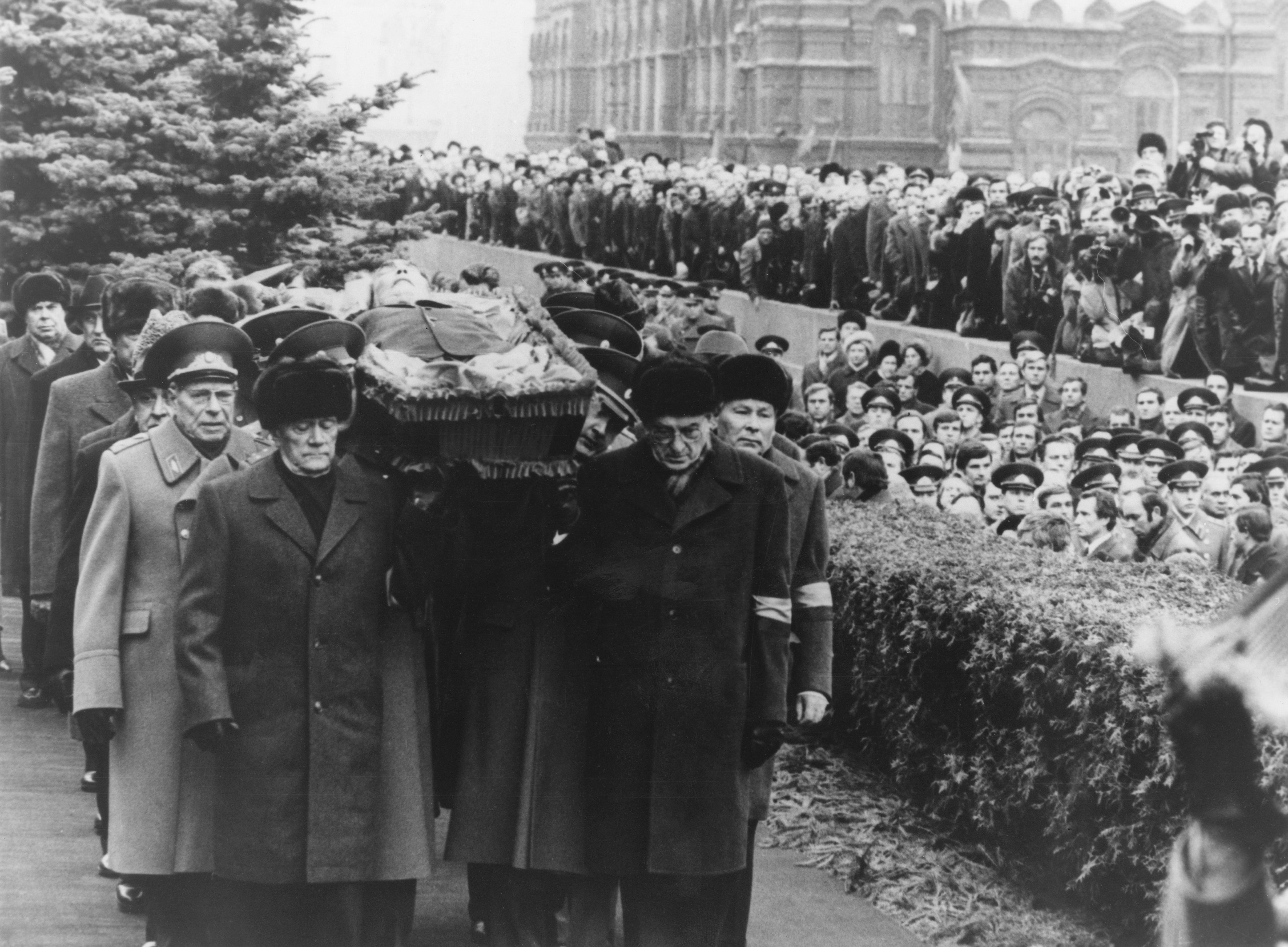
The peculiar nature of working as a foreign correspondent in Moscow was comically illustrated by the accidental means through which we learned of the death of Ustinov, who had been an important political player. He was known to be ailing, but the news that he had actually passed away was first discovered by two American journalists who had gone to the Hall of Pillars, a resplendent venue close to the Kremlin, where the World Chess Championship was taking place. They found the door to the hall closed and a short note pinned to it cancelling the day’s game and transferring it to a nondescript hotel on the north side of the Moskva River.
Curious to know why this had happened, the journalists knocked on the door until it was opened by a cleaning woman holding a mop, who said that she was doing the floor to prepare for the lying-in-state of Marshall Ustinov who had died the previous night. Delighted with their scoop, the journalists went back to their office but, worried by the lowly status of their source, decided that since, like everybody else, the cleaning woman was ultimately employed by the state, they would attribute their information to “a Soviet official”.
Despite all the secrecy, what was happening in the Soviet Union was obvious enough: the old order, the wartime generation, was dying. Soviet conservatives, the leaders who wanted to do things the way Brezhnev had done them, were weak. They needed a younger and healthier candidate and did not have one. The best they could do after the death of Yuri Andropov early in 1984 was appoint Brezhnev’s old aide Konstantin Chernenko to succeed him.
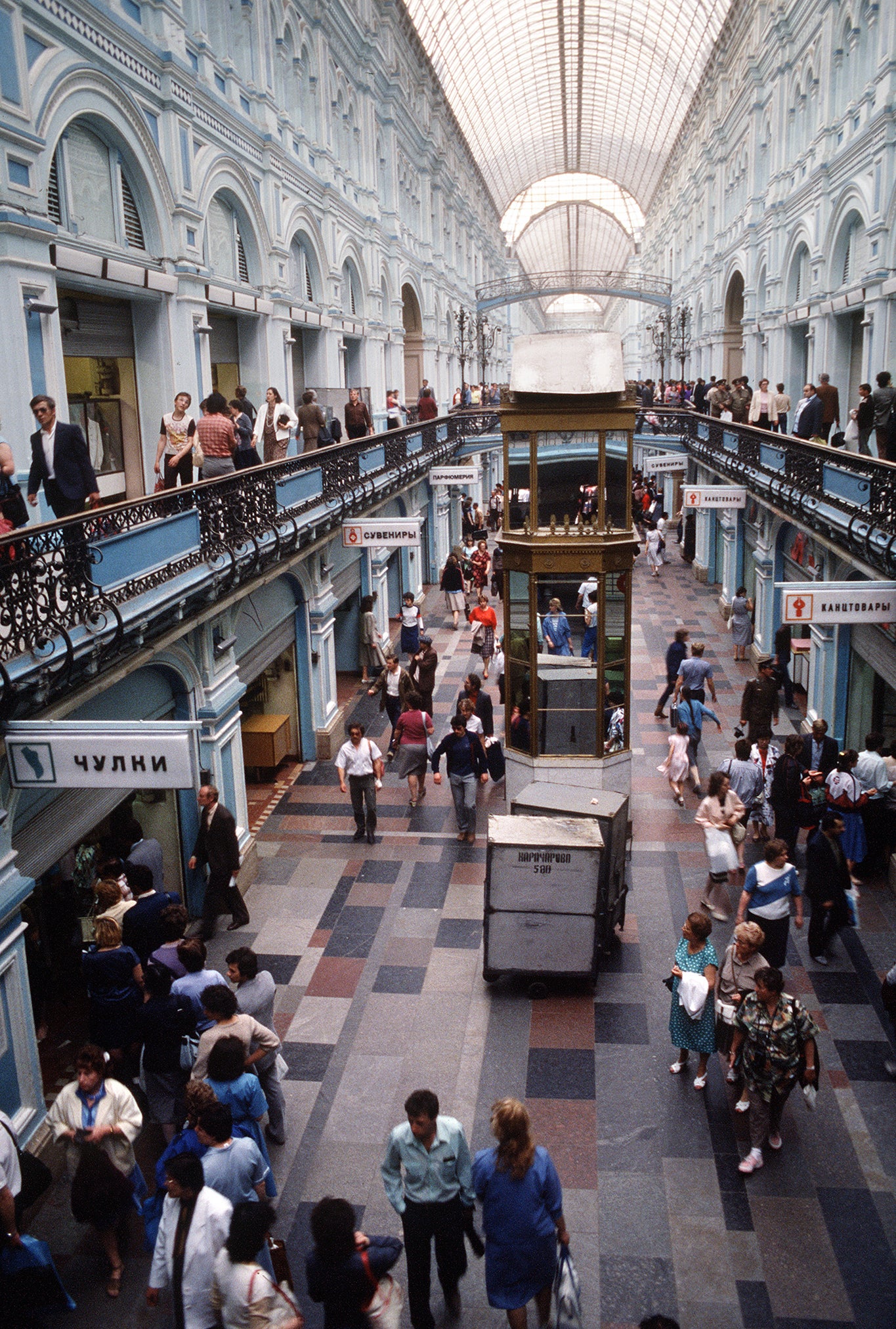
White-haired, and gasping for breath because of his emphysema, Chernenko looked like a malevolent caricature of the old leadership, and by the end of the year he had disappeared from public view and was meant to be resting in his dacha on the outskirts of Moscow. He reappeared only once in what looked like a bungled attempt by Soviet television to prove that he was still animate. It showed him standing upright to receive a delegation but obviously supporting himself by gripping the back of a chair with both hands. When the leader of the delegation tried to give Chernenko a bunch of red flowers he was too weak to take them. Twice he raised his right hand a few inches off the chair, but the effort was too much and the hand fell back.
A few weeks later I went to Chernenko’s funeral, which was interrupted by a touching incident. Everybody, from the Politburo to the crowds outside the GUM department store on the other side of Red Square, was in a good mood. The leadership crisis was finally over. Behind me, on a walkway below the level of the square, special KGB troops, in their dress uniform of gold braid and Persian lamb fur hats, were laughing and smoking cigarettes. Then, as I was about to go home, Mrs Chernenko, who looked like any elderly peasant woman in a Moscow market, threw herself on the coffin before they could take it away. For a few minutes, the funeral came to a halt while she lay sobbing.
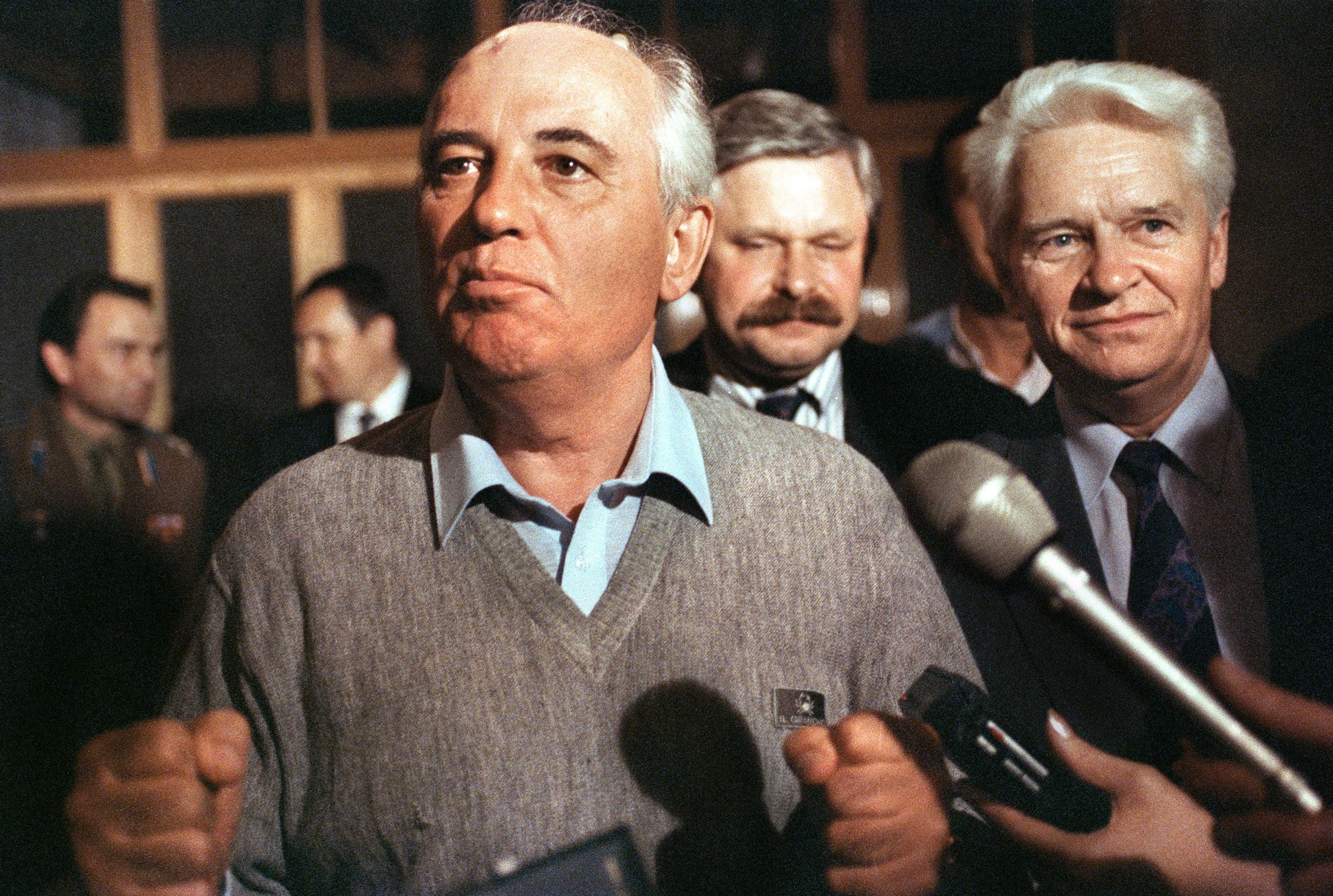
Foreign journalists in Moscow lived in peculiar conditions. The government could never make up its mind whether it regarded them as spies, whose efforts to obtain information should be thwarted at every turn, or people whom it needed to cultivate and influence. Torn between the two approaches, the government tried both at once. The Foreign Ministry organised trips for journalists who, on their return to Moscow, read articles about themselves in the press in which it was said that correspondents A and B, far from showing gratitude for Soviet hospitality, had behaved in a manner difficult to distinguish from straight espionage. The pieces, so evidently based on KGB reports, were written in the pained tone of the trusting friend whose confidence has been betrayed.
Living conditions revealed the same divided approach: in 1984 there were 300 full-time journalists in Moscow living in 20 foreigner-only apartment blocks in different parts of the city. The entrance of each was guarded 24 hours a day by grey-coated police who recorded the name of anybody entering or leaving. Foreigners with passports were allowed in, but ordinary Soviets were stopped unless accompanied by a resident. Inside, foreigners assumed that any word they said could be monitored by the KGB.
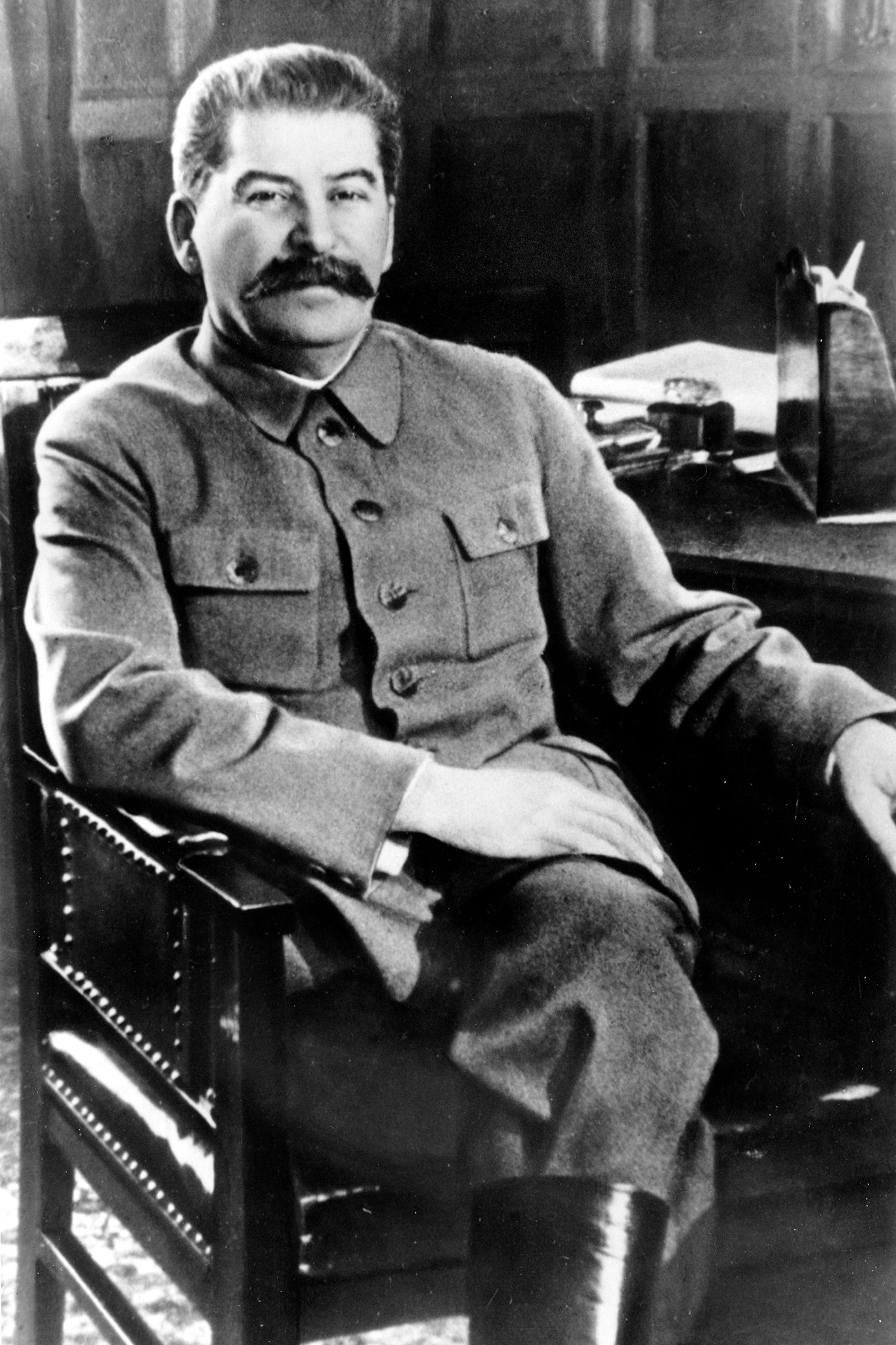
I lived in a nine-storey brown building, opposite the Puppet Theatre on the ring road which circles central Moscow. The building was divided between journalists and diplomats. In the expatriate community, the latter outnumbered the former by 10 to one, giving day-to-day life the peculiar quality of a formal hierarchy, with the ambassadors of the major powers at the top and the nannies at the bottom. At dinner parties, the American, British, French or German ambassadors would sit at the ends of the table and the lower ranks in the middle, so I soon got to know the ambassador from the Cape Verde islands and a black-garbed priest who claimed to be the Archimandrite of Antioch.
The foreign community was full of upstairs-downstairs tensions and quarrels like a 19th century novel. But it was also shaped by pressures that were unique to the Soviet Union. A good example of these peculiarities was the status of the numerous nannies working for resident foreigners. Their life was not an easy one. Foreign ministries across the world, fearing that the seduction of the single diplomat would be rapidly followed by political betrayal, liked members of their embassy staff to be married, and there were therefore numerous children in need of tending.
This was not difficult to arrange. One of the few ways a girl, just graduated in Russian from university, could get a visa to live in Moscow was to work as a nanny. Unfortunately, many of the girls were more interested in Tolstoy and Turgenev than the care of diplomatic offspring. They discovered on arrival that they had to work long hours for little pay. Discontent mounted and, in a development which would not have surprised Karl Marx, inspired a movement of religious revivalism. The nanny of one journalist took to leaving written slogans around his apartment. He told me that he had found it deeply dispiriting one morning on getting out of bed to find a note in one of his slippers which read: “Guard me, Lord Jesus. Satan is in this house.”
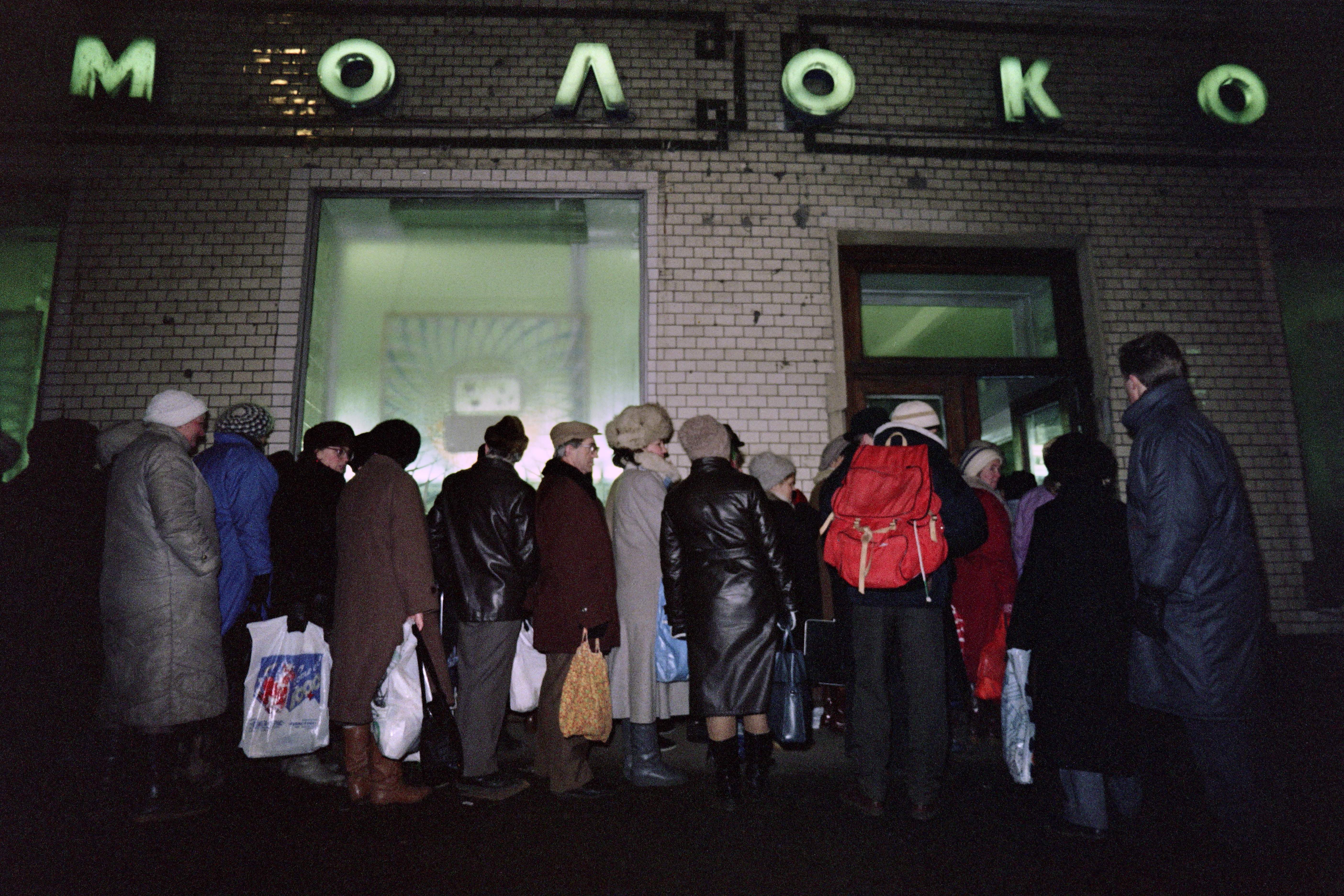
Social claustrophobia arose from the enforced intimacy of members of the expatriate community, and I would escape once a day by taking long walks through central Moscow which, apart from the six-lane highways built by Stalin, had changed little since 1917. Churches and monasteries, transformed into offices and apartments in 1917, still had their primary Russian colours: pale pink, pale green, dark red and cream. To travel out of Moscow, foreigners had to give two working days’ notice to the Foreign Ministry. If you heard nothing, you could go.
Individually, none of these restrictions was very onerous for foreigners but, when taken together, they exerted enough pressure to encourage self-isolation. “What is the Soviet Union? Upper Volta with rockets!” a journalist said to me during my first days in Moscow. At dinner a week later, a diplomat repeated the remark. Over the next three years I heard the same nervous joke, mixing derision and defiance, a dozen times – reassuring, misleading humour that reminded me of Christians in Beirut and Protestants in Belfast. I tried to remember that the worst that could happen to me was expulsion from the Soviet Union.
Foreign diplomats were subjected to greater surveillance than journalists as were Russians with whom they were in touch. A British diplomat told me how, in the early 1980s, the British ambassador, believing that the embassy should have more contact with Soviet intellectuals, had invited 150 of them to the Queen’s birthday party, the main diplomatic festivity of the year. On the day of the party just three of the intellectuals turned up.
There was also an understandable desire on the part of some experts not to admit easily to the idea of fundamental change which would deflate the value of their own accumulated knowledge
Even by Soviet standards this was on the low side, so the embassy drivers, all Soviets, were asked if they had, in fact, delivered the invitations. They admitted that, noticing many of the artists and painters lived in distant outskirts of Moscow, they had wanted to avoid the long drive to deliver each invitation individually and had handed them over to the Soviet Ministry of Culture to pass them on to the appropriate intellectuals with whom the ministry was presumably in contact.
Enraged that the idleness of drivers had sabotaged his plans – for he assumed that the only response of the Ministry of Culture would have been to burn the invitations after putting a black mark against the names of those invited – the ambassador said that if this happened again he would fire them all. Under threat of the sack the following year the embassy drivers diligently drove to distant suburbs of Moscow and walked up long flights of stairs to deliver an invitation personally into the hands of each novelist, painter or poet.
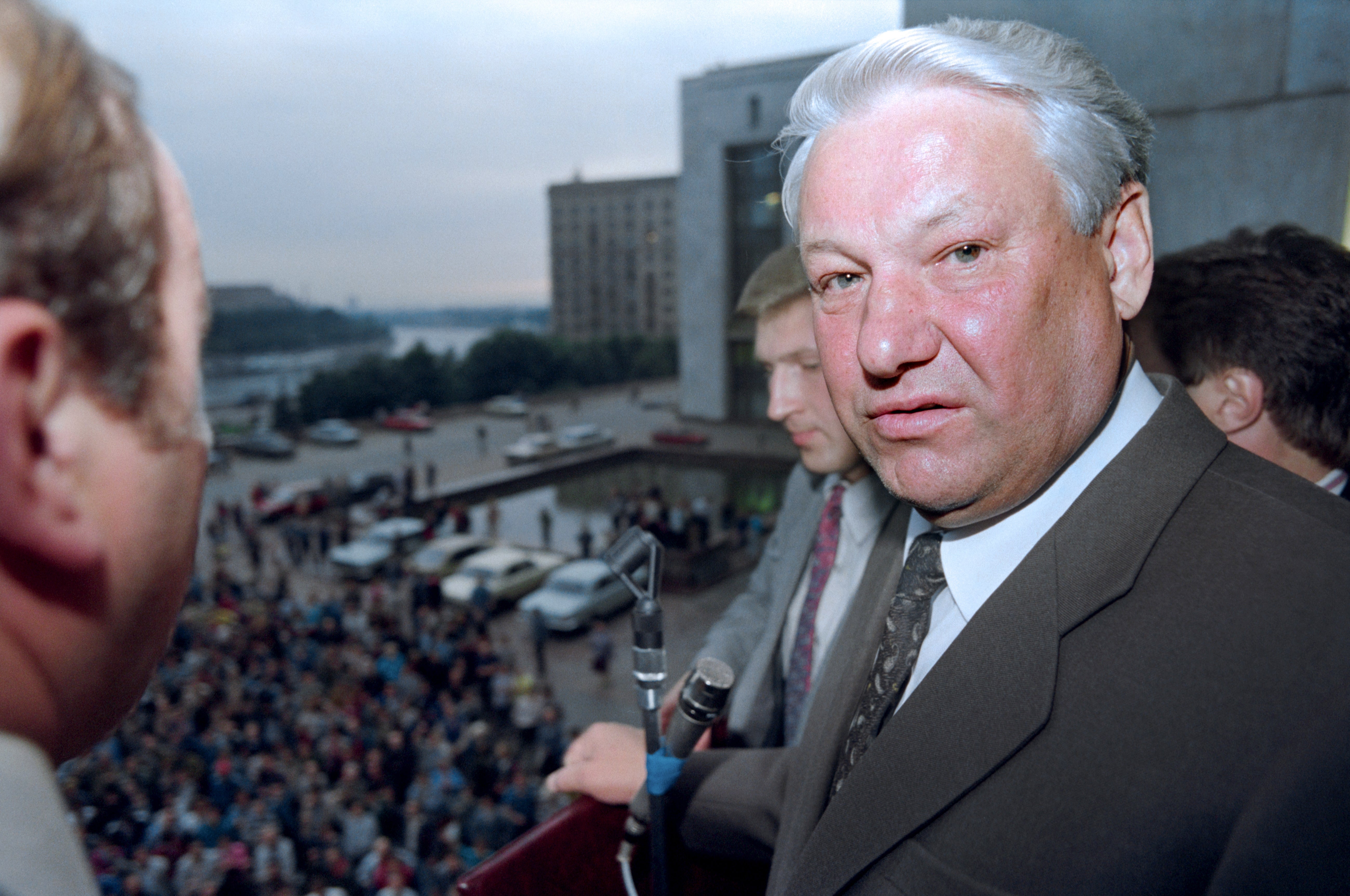
But the ministry had a longer reach than the embassy imagined. On the day of the queen’s birthday the ambassador impatiently awaited their arrival but, looking around the embassy lawn an hour after the party started, he was disappointed to note that only three intellectuals had turned up – and those were the same three who had attended the year before.
Such incidents were misleading, chiefly because the lengths to which the ministry had gone to prevent the intellectuals attending suggested that they might have passed on some vital piece of information, some key to understanding the Soviet Union. It strengthened the belief, notorious among journalists, that greater access through interviews and briefings from those in authority leads to a greater understanding of what is happening.
In Moscow the belief was supported by the academic traditions of Sovietology, which saw the Kremlin as a sort of spaceship hovering over Soviet society and exerting total control over the population. If this was true then the obvious, indeed the only, course for a journalist was to locate and talk to somebody on board, if not in charge of the spaceship.
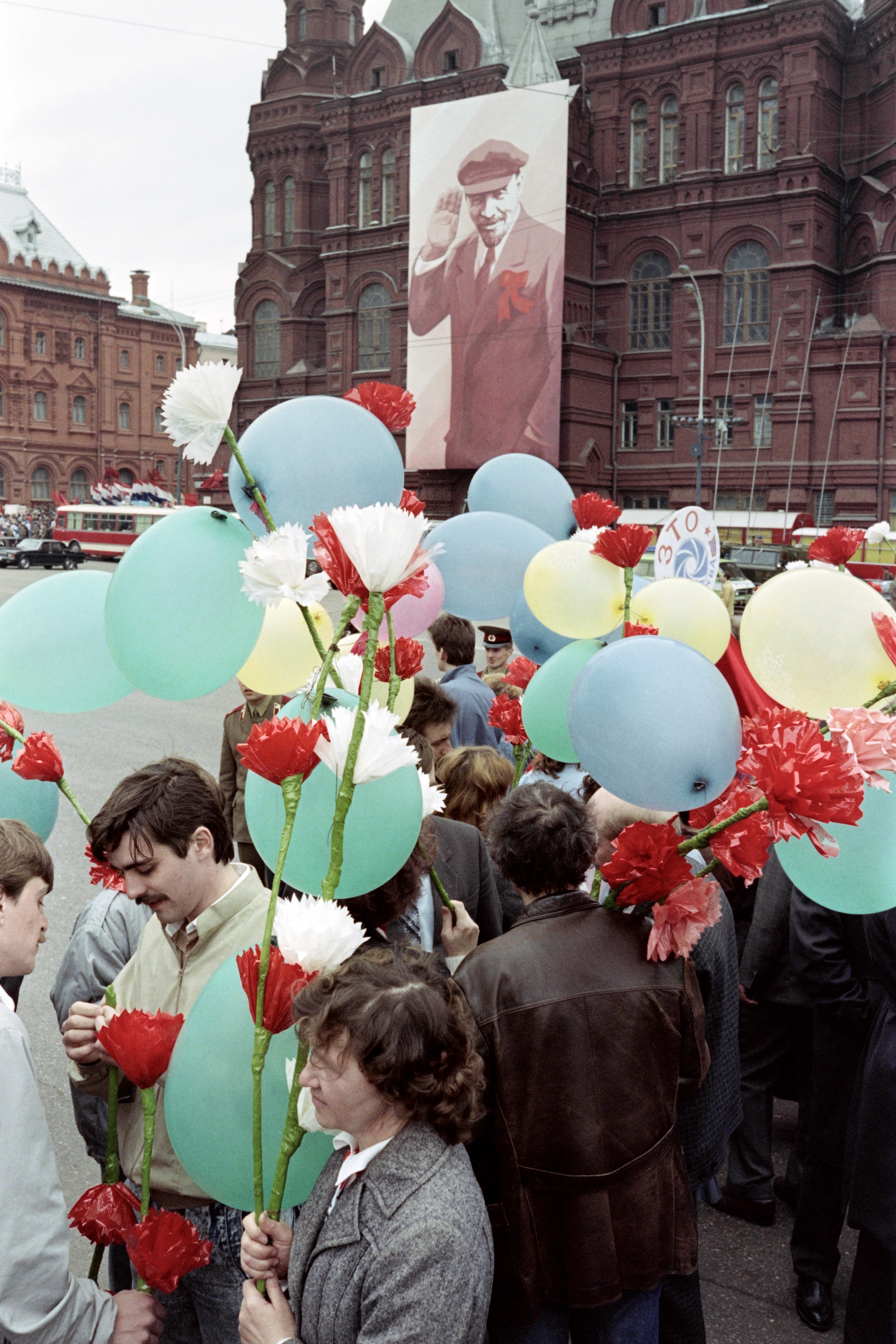
There was some truth in this but, after a few months in Moscow, it was obvious that the spaceship crew, far from being in total command, was trying with some desperation to respond to developments which it did not control. To some of the expatriates in Moscow these developments were superficial, masking the unchanging face of the Soviet state. There was also an understandable desire on the part of some experts not to admit easily to the idea of fundamental change, which would deflate the value of their own accumulated knowledge.
Russia has some special attraction to people who believe that Gorbachev is only a recycled Khrushchev and Stalin or a replay of Peter the Great or Ivan the Terrible. It is comforting, since it requires no extra thought, to believe that we were simply seeing old patterns repeated, that all problems should respond to traditional remedies.
A diplomat told me of an early adherent of this nothing-much-changes approach who had advised the British Foreign Office in 1917 just after the Bolsheviks had seized power. The western allies were worried that the revolutionaries would sign a separate peace deal with Germany. Experts on Russian affairs were consulted on how to influence the new leadership.
Few had anything useful to suggest until one elderly official put forward a novel plan. He said that during his many years of dealing with Russians he had noticed their fondness for decorations. He therefore proposed that Britain award Lenin a knighthood and Trotsky some lesser but still worthwhile honour to encourage them to break off talks with Germany.
Join our commenting forum
Join thought-provoking conversations, follow other Independent readers and see their replies
Comments